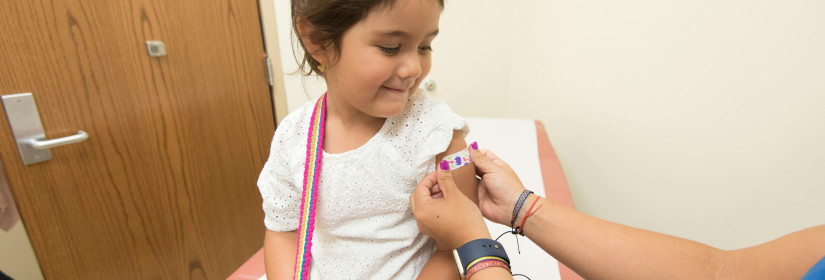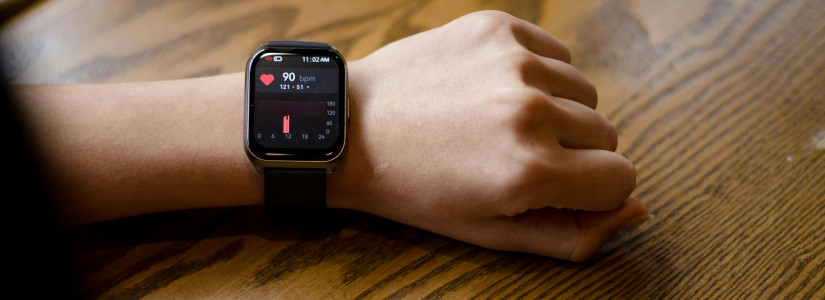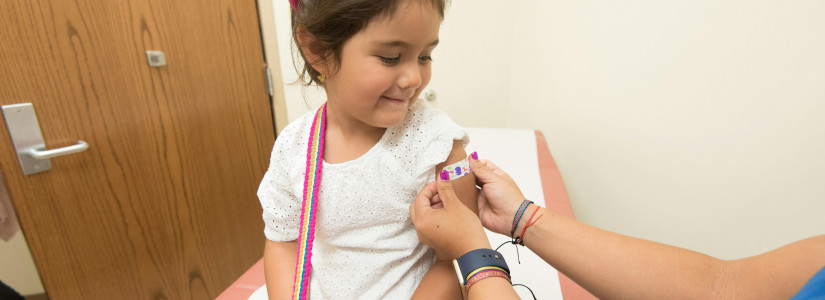Vaccination Impact: Saving Lives and Shaping a Healthier Future

Over the last 50 years, efforts around the world to get people vaccinated have saved at least 154 million lives, which breaks down to saving about 6 lives every single minute of each year.
A huge research effort announced by the World Health Organization (WHO) and published in The Lancet journal shares these figures, highlighting the incredible impact of vaccinations. Most of these lives saved, around 101 million, were babies.
This study, led by WHO, has shown that getting vaccinated is the most effective health action when it comes to ensuring babies not only celebrate their first birthday but also grow up to be healthy adults.
The measles vaccine stands out, being responsible for 60% of the infant lives saved, making it the most impactful in reducing deaths among babies. It's expected to continue being a key player in saving lives moving forward.
Vaccinations over the last half-century against 14 diseases have directly led to a 40% drop in infant deaths worldwide, and even more in Africa, where it's over 50%. The WHO's Director-General, Dr. Tedros Adhanom Ghebreyesus, stated that vaccines are one of the most powerful tools we have against diseases.
Thanks to vaccines, smallpox has been wiped out, polio is close to being eradicated, and new vaccines are being developed against diseases like malaria and cervical cancer. Continued investment in vaccine research could save millions more lives in the future.
The study also found that each life saved by vaccination contributes an average of 66 years of healthy life, totaling 10.2 billion healthy life years over 50 years. Additionally, more than 20 million people can walk today who would otherwise have been paralyzed by polio, and the world is on the brink of eradicating this disease entirely.
The importance of vaccines goes beyond individual protection. With 67 million children missing out on vaccinations during the pandemic years, there's a critical need to keep up the momentum in immunization efforts worldwide.
As we approach the 50th anniversary of the Expanded Programme on Immunization (EPI) in May 2024, it's clear the program has made monumental strides since its inception in 1974.
Initially aimed to vaccinate children against six diseases, it now covers vaccinations against 13 diseases universally, with specific recommendations for an additional 17, benefiting not just children but adolescents and adults too. From a mere 5% of infants receiving routine immunizations at the start of the EPI, today, 84% are protected with 3 doses of the diphtheria, tetanus, and pertussis (DTP) vaccine.
Interestingly, measles vaccines alone have been responsible for saving nearly 94 million of the estimated 154 million lives since 1974. However, vaccine coverage must reach 95% to protect communities from outbreaks, a goal that remains challenging as global coverage rates fall below this threshold.
Partnerships like Gavi, the Vaccine Alliance, have played a significant role in these efforts, procuring over 2 billion vaccine doses annually for nearly half the world's children and expanding vaccine access to the poorest countries. Initiatives like these highlight the importance of continuing to fund and support immunization efforts to save lives.
Vaccination programs offer a foundation for primary health services by reaching wide populations and enabling the delivery of additional care such as nutritional support and disease screening.
Although this study focused on 14 diseases, the broader impacts of vaccines extend far beyond, offering protection against over 30 life-threatening diseases and contributing to societal and economic benefits.
Looking forward, vaccines, including those for diseases not covered in this study like the HPV vaccine for cervical cancer, continue to offer hope for preventing future deaths and achieving global health goals, such as eliminating cervical cancer by 2030.
As we celebrate World Immunization Week, the joint campaign “Humanly Possible” led by WHO, UNICEF, Gavi, and the Bill & Melinda Gates Foundation reminds us of the power of working together towards a healthier future for all.
The campaign emphasizes the need for global leaders to support and fund vaccines, a cornerstone of public health and one of humanity’s greatest achievements.
-
Subscribe to our Weekly Newsletter for up-to-date articles and resources!
A huge research effort announced by the World Health Organization (WHO) and published in The Lancet journal shares these figures, highlighting the incredible impact of vaccinations. Most of these lives saved, around 101 million, were babies.
This study, led by WHO, has shown that getting vaccinated is the most effective health action when it comes to ensuring babies not only celebrate their first birthday but also grow up to be healthy adults.
The measles vaccine stands out, being responsible for 60% of the infant lives saved, making it the most impactful in reducing deaths among babies. It's expected to continue being a key player in saving lives moving forward.
Vaccinations over the last half-century against 14 diseases have directly led to a 40% drop in infant deaths worldwide, and even more in Africa, where it's over 50%. The WHO's Director-General, Dr. Tedros Adhanom Ghebreyesus, stated that vaccines are one of the most powerful tools we have against diseases.
Thanks to vaccines, smallpox has been wiped out, polio is close to being eradicated, and new vaccines are being developed against diseases like malaria and cervical cancer. Continued investment in vaccine research could save millions more lives in the future.
The study also found that each life saved by vaccination contributes an average of 66 years of healthy life, totaling 10.2 billion healthy life years over 50 years. Additionally, more than 20 million people can walk today who would otherwise have been paralyzed by polio, and the world is on the brink of eradicating this disease entirely.
The importance of vaccines goes beyond individual protection. With 67 million children missing out on vaccinations during the pandemic years, there's a critical need to keep up the momentum in immunization efforts worldwide.
As we approach the 50th anniversary of the Expanded Programme on Immunization (EPI) in May 2024, it's clear the program has made monumental strides since its inception in 1974.
Initially aimed to vaccinate children against six diseases, it now covers vaccinations against 13 diseases universally, with specific recommendations for an additional 17, benefiting not just children but adolescents and adults too. From a mere 5% of infants receiving routine immunizations at the start of the EPI, today, 84% are protected with 3 doses of the diphtheria, tetanus, and pertussis (DTP) vaccine.
Interestingly, measles vaccines alone have been responsible for saving nearly 94 million of the estimated 154 million lives since 1974. However, vaccine coverage must reach 95% to protect communities from outbreaks, a goal that remains challenging as global coverage rates fall below this threshold.
Partnerships like Gavi, the Vaccine Alliance, have played a significant role in these efforts, procuring over 2 billion vaccine doses annually for nearly half the world's children and expanding vaccine access to the poorest countries. Initiatives like these highlight the importance of continuing to fund and support immunization efforts to save lives.
Vaccination programs offer a foundation for primary health services by reaching wide populations and enabling the delivery of additional care such as nutritional support and disease screening.
Although this study focused on 14 diseases, the broader impacts of vaccines extend far beyond, offering protection against over 30 life-threatening diseases and contributing to societal and economic benefits.
Looking forward, vaccines, including those for diseases not covered in this study like the HPV vaccine for cervical cancer, continue to offer hope for preventing future deaths and achieving global health goals, such as eliminating cervical cancer by 2030.
As we celebrate World Immunization Week, the joint campaign “Humanly Possible” led by WHO, UNICEF, Gavi, and the Bill & Melinda Gates Foundation reminds us of the power of working together towards a healthier future for all.
The campaign emphasizes the need for global leaders to support and fund vaccines, a cornerstone of public health and one of humanity’s greatest achievements.
-
Subscribe to our Weekly Newsletter for up-to-date articles and resources!








